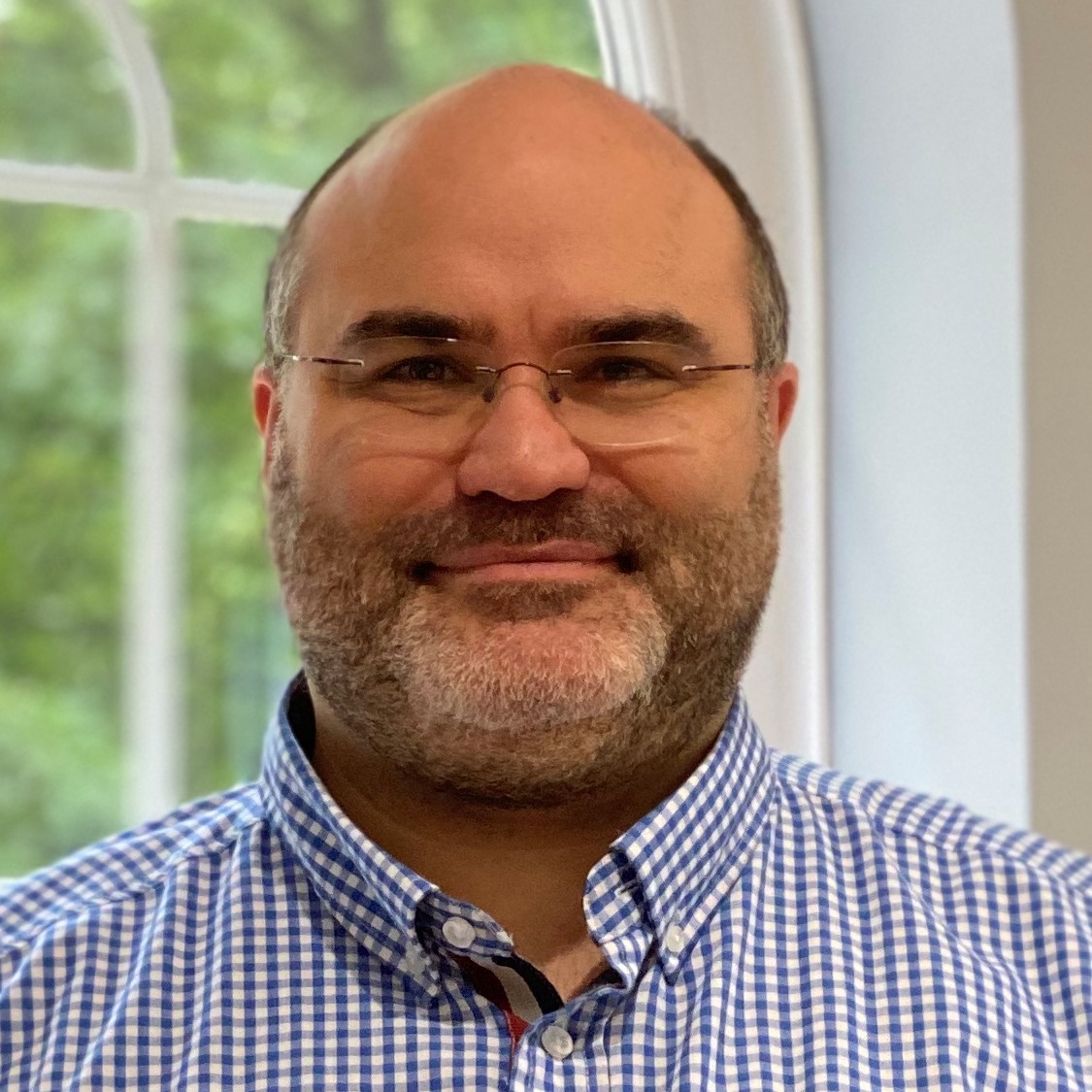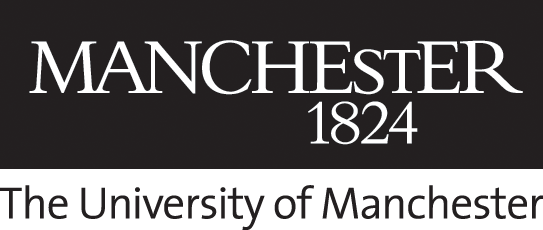|
|
Alejandro F Frangi, PhD Bicentennial Turing Chair in Computational Medicine Division of Informatics, Imaging and Data Sciences Department of Electrical Engineering W: www.cistib.org/afrangi | E: alejandro.frangi @ manchester.ac.uk Suaviter in modo, fortiter in re – C Acquaviva (1543-1615) |
 |
Alejandro (Alex) was born in La Plata, Argentina. In 1991, he moved to Barcelona, Spain, where he obtained his undergraduate degree in Telecommunications Engineering from the Technical University of Catalonia (Barcelona) in 1996. Then he carried out research on electrical impedance tomography for image reconstruction and noise characterization at the same institution under a CIRIT grant. In 1997 he obtained a grant from the Dutch Ministry of Economic Affairs to pursue his PhD in Medicine at the Image Sciences Institute of the University Medical Center Utrecht on model-based cardiovascular image analysis. During this period he was visiting researcher at the Imperial College in London, UK, and at Philips Medical Systems BV, The Netherlands.
Prof Frangi is the Bicentennial Turing Chair in Computational Medicine at the University of Manchester, Manchester, UK, with joint appointments at the Schools of Computer Science and Health Science. He is also the Royal Academy of Engineering Chair in Emerging Technologies, with a focus on Precision Computational Medicine for in silico trials of medical devices. His research vision was recently awarded an Advanced Grant from the European Research Council under the Computer Science and Informatics (PE6) panel. He is an Alan Turing Institute Fellow. Since 2001, he has founded and directed the Centre for Computational Imaging and Simulation Technologies in Biomedicine. Prof Frangi has visiting positions at KU Leuven, the Cixi Institute of Biomedical Engineering, CNITECH Chinese Academy of Science (Ningbo), the Zhejiang University of Technology (Hangzhou), Shenzhen University (Shenzhen), and Beijing Institute of Technology (Beijing). At the national level, Prof Frangi leads InSilicoUK Innovation Network, spearheading in silico methods as a source of regulatory evidence and accelerated innovation in the life sciences sector. Prof. Frangi is among the top 90 Computer Scientists in the UK, edited several books, published seven editorial articles and more than 285 journal articles in key international journals of his research field, and more than 200 book chapters and international conference articles with an h-index 74 and more than 32600 citations according to Google Scholar. He has been three times Guest Editor of special issues of IEEE Trans Med Imaging, one of IEEE Trans Biomed Eng, and one of Medical Image Analysis journals. He was chair of the Third International Conference on Functional Imaging and Modelling of the Heart (FIMH05) held in Barcelona in June 2005, Publications Chair of the IEEE International Symposium in Biomedical Imaging (ISBI 2006), Programme Committee Member of various editions of the Intl Conf on Medical Image Computing and Computer Assisted Interventions (MICCAI) (Brisbane, AU, 2007; Beijing CN, 2010; Toronto CA 2011; Nice FR 2012; Nagoya JP 2013), International Liaison of ISBI 2009, Tutorials Co-Chair of MICCAI 2010, and Programme Co-chair of MICCAI 2015. He was also the General Chair for ISBI 2012, held in Barcelona, MICCAI 2018, held in Granada, Spain, and Information Processing in Medical Imaging (IPMI) 2023 in Bariloche, Argentina.
Prof Frangi is Chair of the Editorial Board of the MICCAI-Elsevier Book Series (2017-2020), is Associate Editor-in-Chief of Progress in Bioengineering (IOP Press), and serves as Associate Editor of IEEE Trans on Medical Imaging, Medical Image Analysis, SIAM Journal Imaging Sciences, Computer Vision and Image Understanding journals. Prof Frangi was a foreign member of the Review College of the Engineering and Physical Sciences Research Council (EPSRC, 2006-10) in the UK. He is a recipient of the IEEE Engineering in Medicine and Biology Technical Achievement (2021) and Early Career (2006) Awards, the ICT Knowledge Transfer Prize (2008) and two Teaching Excellence Prizes (2008 and 2010) by the Social Council of the Universitat Pompeu Fabra. He also received the UPF Medal (2011) for his service as Dean of the Escuela Politècnica Superior. He was awarded the ICREA-Academia Prize by the Institució Catalana de Recerca i Estudis Avançats (ICREA) in 2008, a President's International Initiative Award in 2019 by the Chinese Academy of Science, and a Pengcheng Scholar Programme Distinguished Professor at Shenzhen University by the Shenzhen Education Bureau. Prof Frangi is an IEEE Fellow (2014), EAMBES Fellow (2013), SPIE Fellow (2020), AAIA-AI Fellow (2021), MICCAI Fellow (2021), ATI Fellow (2021), MICCAI Fellow (2021), and SIAM and IET Member. He served as an elected member of the Board of Directors of the Medical Image Computing and Computer-Assisted Interventions Society (MICCAI) (2014-2019). Prof. Frangi served on the Scientific Advisory Board of the European Institute for Biomedical Imaging Research (EIBIR, 2014-2018) and Chaired the Fellows Committee of the IEEE Engineering in Medicine and Biology Society (2017-2018). Under his leadership, CISTIB develops GIMIAS (Graphical Interface for Medical Image Analysis and Simulation), an open-source platform to rapidly develop pre-commercial software prototypes in the areas of image computing and image-based computational physiology modelling, and MULTI-X (Health Data Analytics and Modelling As a Service Platform), a cloud-based platform for computational phenomics, in silico medicine, and in silico clinical trials. Research and development carried out in his group led to three spin-off companies (Clintelis SA 2009), GalgoMedical SA 2013 and adsilico Ltd 2022).
Education
BSc/MSc Telecommunications Engineering, Universitat Politecnica de Catalunya, 1996, Barcelona, Spain
PhD Imaging Sciences, Utrecht University, 2001, Utrecht, The Netherlands
Professional memberships
IEEE Fellow
SPIE Fellow
MICCAI Fellow
EAMBES Fellow
Student Education
At the moment I do not have teaching commitments at the undergraduate level but am intensively supervising MSc and PhD students at the School of Computer Science and at the School of Health Sciences in the areas of computational imaging and computational biomechanics with a particular interest in cardiovascular, metabolic and bone disease and in application to in silico trials of medical devices. See the www.InSilicoUK.org Network I lead for more details.
I am interested in working with motivated students to solve unmet clinical needs in medicine by utilising novel computational medicine methods. I work both with students willing to develop fundamental algorithms in computational imaging, machine learning and computational mechanics as well as with students seeking to translate these methods to the clinical setting.
To this end, my lab has two bases, one at the School of Computer Science (Faculty of Science and Engineering) where I affiliate with the Artificial Intelligence Theme and one at the School of Health Sciences where I affiliate with the Division of Informatics, Imaging and Data Science (Faculty of Biology, Medicine and Health) both at the University of Manchester.
You can check out the work of my former PhD students at https://www.cistib.org/afrangi/team/alumni and my publications at www.cistib.org/afrangi/publications or my GoogleScholar profile https://tinyurl.com/affrangi.
Postgraduate and Postdoc Opportunities
We welcome enquiries from motivated and qualified applicants from all around the world who are interested in PhD study. Please, send your Curriculum Vitae, university transcripts, and 3 sample publications.
«Si los pueblos no se ilustran, si no se vulgarizan sus derechos, si cada hombre no conoce lo que vale, lo que puede y lo que se le debe, nuevas ilusiones sucederán a las antiguas, y después de vacilar algún tiempo entre mil incertidumbres, será tal vez nuestra suerte mudar de tiranos sin destruir la tiranía». Mariano Moreno, 1810, La Gaceta.

